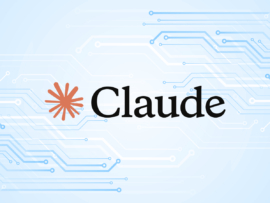
Anthropic has been rolling out new capabilities for its Claude AI assistant aimed at enterprise, education, and developer audiences, while maintaining a strict privacy-first approach. The updates — spanning long-term memory, extended problem-solving, and voice mode — mark a strategic push to differentiate Claude from rivals like ChatGPT.
Voice mode and a new memory feature boosts efficiency
The company quietly introduced Claude voice mode for mobile users, with Google Workspace integration for natural calendar briefings and document searches.
This week, Anthropic launched Claude’s new memory feature, giving Enterprise, Team, and Max subscribers the option to store up to 500,000 tokens — about 1,000 pages of text — across conversations. Unlike competing AI tools, Claude requires explicit user prompts to recall past interactions and can keep personal and work contexts separate.
Users can toggle memory on or off, delete conversations at any time, and opt out of data retention entirely. Most unflagged prompts are stored for no longer than two years, and Anthropic does not train on user data unless given explicit permission.
Extended Thinking mode speeds up complex problem-solving
For enterprise developers, Claude 4 added Extended Thinking mode, which allocates thousands of tokens for step-by-step reasoning on complex tasks. In one case, Opus 4 migrated a 2-million-line Java monolith to microservices in 72 hours, a project that usually takes months. The model scored 94.7% on coding benchmarks, surpassing GPT-4.5’s 91.2%.
A major financial services firm recently replaced 12 code reviewers with Claude Sonnet 4, cutting review time from days to hours while maintaining quality.
For developers, Claude Code integrates with GitHub for pull request automation, a tool now embedded in Anthropic’s own onboarding process.
Cost-competitive pricing
Pricing for Opus 4 is $15 per million input tokens — about 20% less than OpenAI’s enterprise rates — and Sonnet 4 delivers 85% of Opus performance at 60% less computational cost.
Socratic-style dialogue support
Anthropic’s Claude for Education with a Learning mode is designed to support Socratic-style dialogue instead of direct answers. An analysis of one million student conversations found 39.8% involved creating content and 30.2% focused on analyzing complex ideas.
Ethics built into the AI’s core
Claude is trained under Anthropic’s Constitutional AI framework, which embeds ethical principles into the model. Research on 700,000 conversations found Claude applies over 3,300 distinct values, consistently maintaining “healthy boundaries” in sensitive discussions and prioritizing “historical accuracy” in academic contexts.
Long-term AI strategy
Anthropic’s measured rollout suggests a long-term strategy: build AI that remembers only when needed, reasons deeply for complex tasks, and keeps ethics at the forefront. For organizations prioritizing privacy, reliability, and practical utility over novelty, Claude’s recent updates may signal a different future for AI assistants.
Learn about how AI agents are creating insider security threat blind spots.





